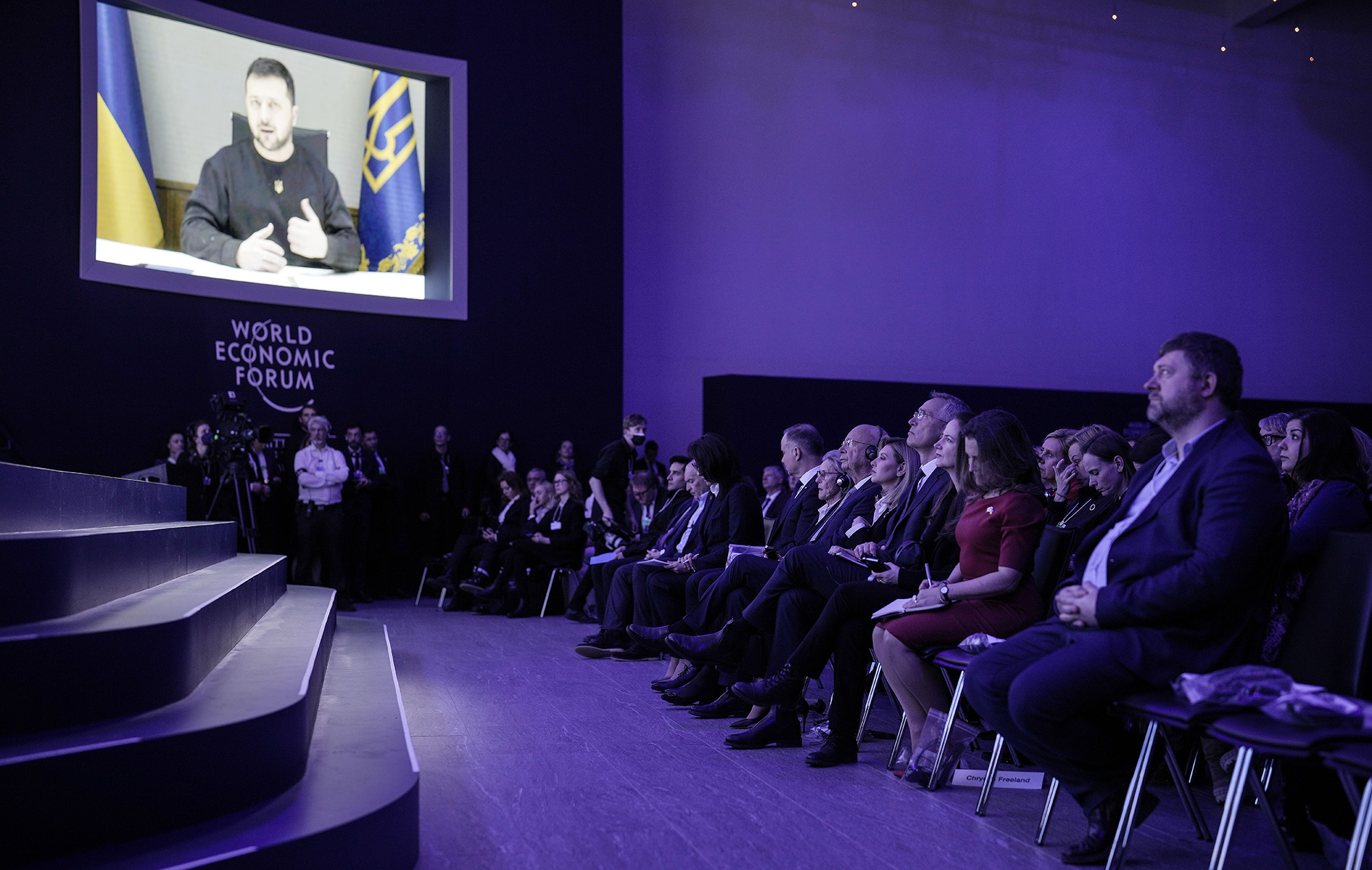The West has reached its latest fateful crossroads over Ukraine.
Looming decisions on deepening support for Kyiv’s fight against Russian President Vladimir Putin’s onslaught have been rendered even more critical by a winter battlefield that was more dynamic than the expected frozen stalemate.
Time is also fast ebbing for the US and its allies to send more powerful weapons and to train Ukrainian soldiers how to use them before the second, possibly decisive year of the war, which could see Russia launch a ferocious new offensive.
The aching humanitarian cost of the conflict and the justification for Western aid was, meanwhile, laid bare by the horror of a Russian cruise missile attack on a nine-story apartment block in Dnipro, in central Ukraine, that killed 45 people including six children. The tragedy exacerbated the depravity of an unprovoked war and renewed calls for Putin to face war crime charges. It also underscored that any hopes for a negotiated end to the war are more distant than ever, a fact that seems to have injected new resolve and unity into the Western alliance at a critical moment.
Partners are now committing tanks and armored vehicles to Ukraine. Several are joining the US in sending Patriot anti-missile missiles – steps that would have been off limits early in the war in order to avoid further provoking Putin.
Ukraine, given its desperate plight, will always want more. And while the West’s coming choices will ultimately be based on an assessment of its own interests, the context of Ukraine’s agony and courage is impossible to ignore.
“We are facing the collapse of the world as we know it, the way we are accustomed to it or to what we aspire,” said Ukrainian first lady Olena Zelenska at the World Economic Forum in Davos on Tuesday, in the latest heart-wrenching and well-timed intervention from Ukraine’s expert messaging effort.
The questions the West now faces are grave, but they are also familiar.
How far should NATO go in supplying Ukraine’s increasingly desperate calls for more numerous and more sophisticated offensive weapons? What is Russia’s red line before Western action provokes a massive escalation – possibly including the use of a battlefield nuclear weapon that could open a horrid new age of warfare and a risk of US-Russia conflagration?
Then there is the question of how much longer the political underpinnings of an extraordinary Western effort to save Ukraine will hold, in the United States and Europe – even if a mild continental winter has weakened Putin’s efforts to wage energy warfare against civilian populations.
Read the full analysis here.






More News
Business-First Hong Kong Now Comes With a Catch: Beijing Politics
London Moves to Revive Its Reputation as a Financial Hub
Bill Walton’s Long, Strange Tale of N.B.A. Survival (Published 2016)